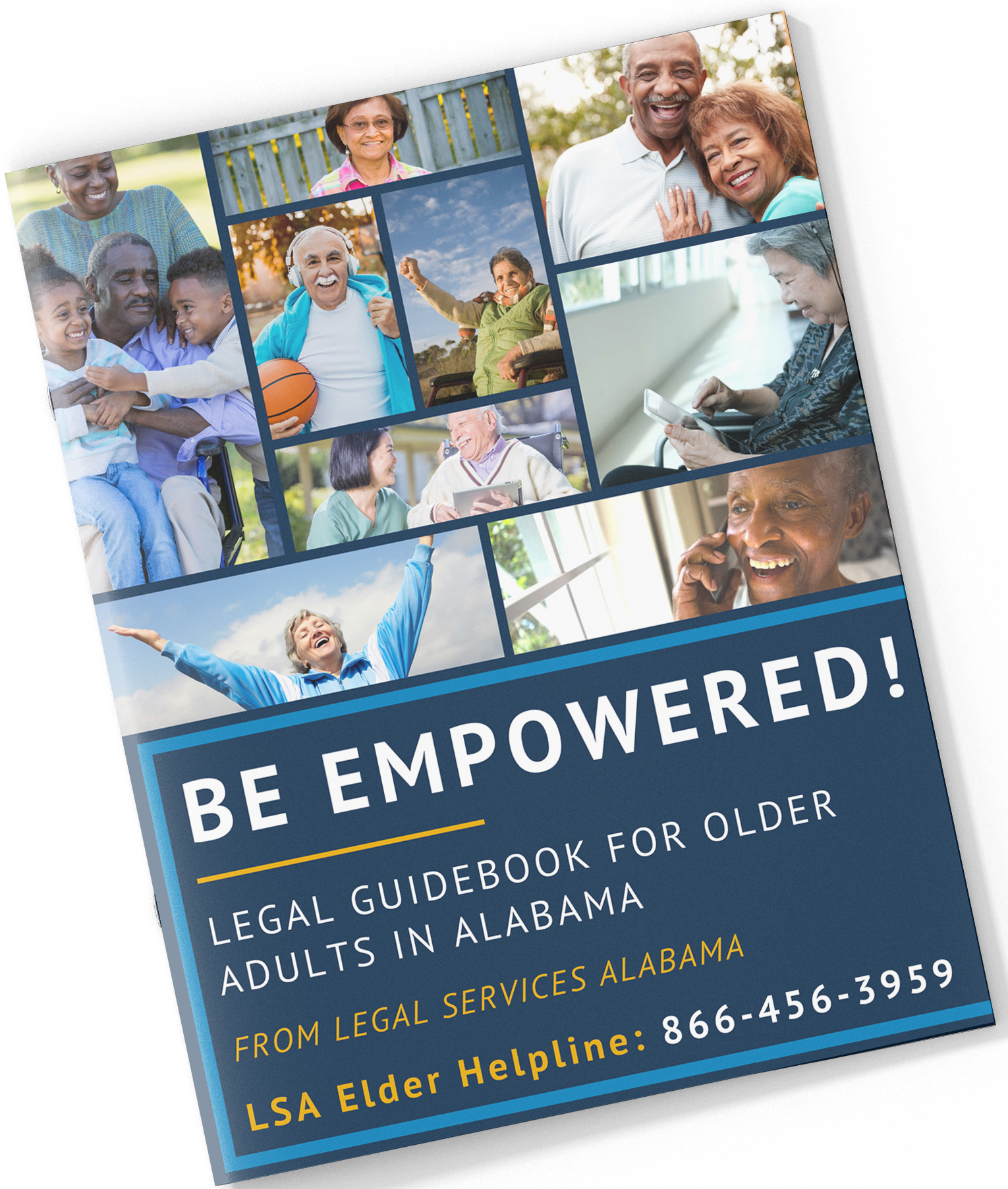Older Adult Resources
Select from the subjects below to access helpful information and resources.

We can help with the following problems
Are you experiencing any of the situations listed below?
Click the arrow to the left of each item to read how LSA can help or
The following videos accompany our Legal Guidebook for Older Adults in Alabama. They include audio narration and captions for greater accessibility.
We lead presentations for groups of older adults at senior centers, libraries, county extension offices, churches, community centers, and other locations throughout Alabama.
We also staff tables at resource fairs and other events for older adults across the state.
If you are a service provider for older adults and would like us to speak to your team about what Legal Services Alabama does to help older adults, please contact us.
For more information, contact Elder Law Lead Attorney, Lee Jordan at ljordan@alsp.org or call: 334-223-0226.

Phone lines are open 8:30am-4:30pm, Monday-Friday
